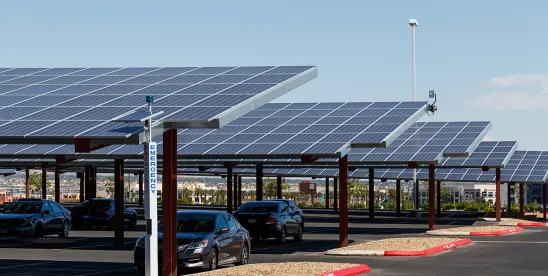On January 23, the Chairman of the Commodity Futures Trading Commission (“CFTC”), Rostin Behnam, announced in his keynote speech at the Commodity Markets Council’s annual conference that the CFTC “can play a role in voluntary carbon markets.” This is not the first time that the CFTC has publicly stated that it is considering its role vis-a-vis regulation of voluntary carbon markets (“VCMs”) or compliance carbon markets (“CCMs”), but it is the first time that the CFTC Chair has articulated a clear action plan for regulation. According to Chairman Behnam, carbon markets "must have integrity and adhere to basic market regulatory requirements."
Chairman Behnam’s comments are significant for a number of reasons.
First, the comments confirm the CFTC's authority to “play a role” in VCMs because carbon itself, as well as carbon and other environmental offsets, credits and allowances, generally are considered “commodities” as defined in § 1a(9) of the Commodity Exchange Act of 1936 (“CEA”) and as explained in CFTC and Securities and Exchange Commission (“SEC”) guidance. As a “commodity,” transactions involving carbon or carbon offsets as VCMs are subject to CFTC’s anti-fraud and anti-manipulation enforcement jurisdiction.
Second, because VCMs and CCMs are commodities markets, the CFTC not only “can” but is bound to police these markets pursuant to the CEA. In fact, a group of U.S. senators wrote to the CFTC in October 2022 directing the CFTC to take “concrete steps to implement rules governing the voluntary carbon offsets market, also referred to as carbon credits.”
Third, commodities originating in VCMs and CCMs are now also traded as listed futures and options contracts on CFTC-regulated designated contract markets – i.e., commodity exchanges. For example, the CME Group lists futures on California carbon allowances as well as Regional Greenhouse Gas Initiative CO2 allowances, and the ICE and Nodal exchanges list futures on commodities also traded on VCMs and CCMs in the U.S. and globally. Because futures and options on commodities qualify as contracts for future delivery (such as derivatives), the CFTC under the CEA not only has a role but also exclusive enforcement authority in these markets. Indeed, Chairman Behnam states that in these markets the CFTC’s “responsibility is real.”
Fourth, in light of recent COP27 announcements, as well as the goals of the White House National Climate Task Force, the U.S. government will have to become more actively involved in further development of VCMs and CCMs, and the CFTC would have to play a key role in these efforts, especially if there will be some form of a national cap-and-trade scheme. The CFTC has already taken steps to define its regulatory role in these markets.
So what does this all mean? There are two likely outcomes for the immediate future: (a) the CFTC’s division of enforcement will become more active in prosecuting fraud and manipulation in commodity or cash VCMs and CCMs (e.g., greenwashing, or fraud in claiming reduction in carbon capture or reduction), as well as in related exchange or OTC-traded derivatives markets, and (b) the CFTC will become more involved in regulation of these markets in the U.S. in coordination with other regulators and global initiatives (e.g., IOSCO).




 />i
/>i

